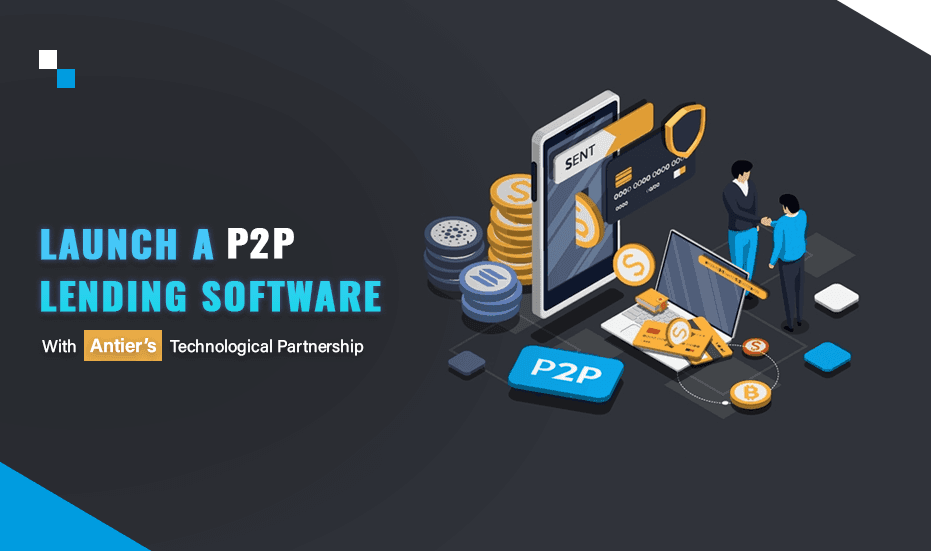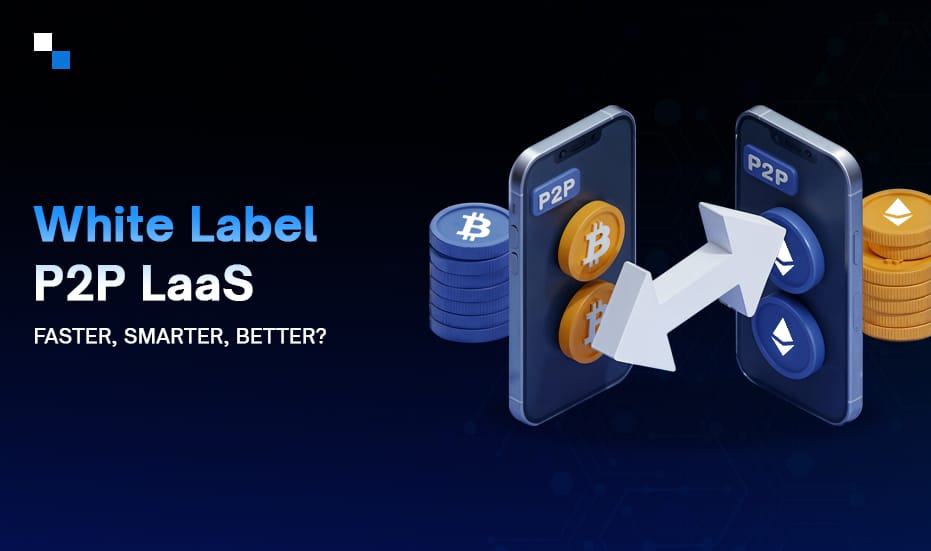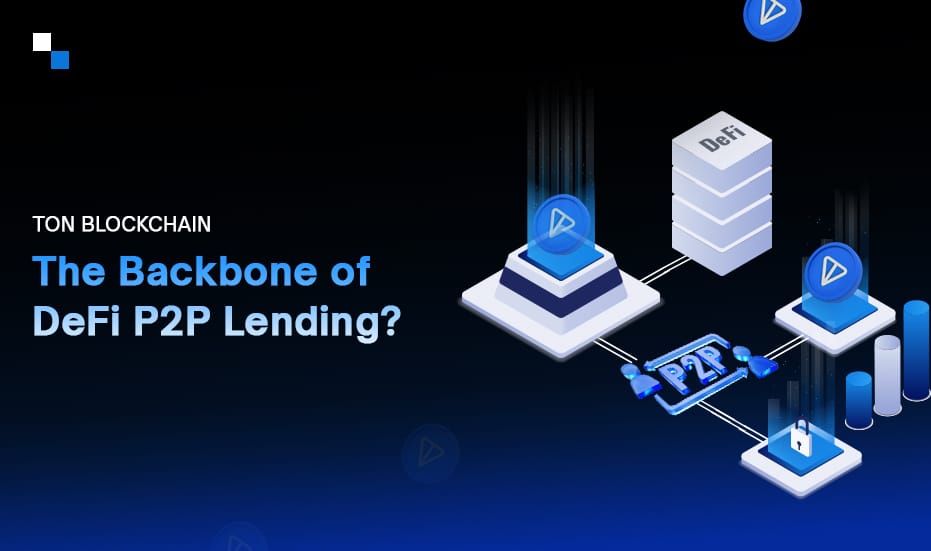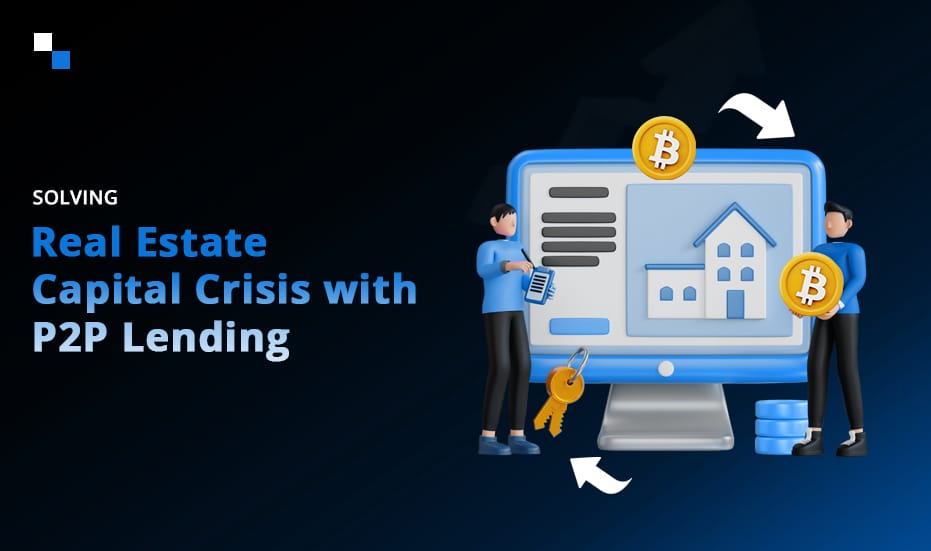
Everything About Aragon DAO Governance Platform
November 15, 2022
Smart Contract Audit Services: Ensure Security & Growth!
November 16, 2022Financial software, algorithms, and applications are proliferating as a result of the growing demand for digital lending and credit solutions. If someone applies for a loan at the bank, the bank will use a portion of the assets that other consumers have deposited to provide the loan. However, Peer to Peer Lending Software eliminates the middleman while allowing customers to apply funds directly to businesses and receive a prompt response. They can see if the request is granted or not. P2P Lending Software operates in a similar manner, with loans being given and collected by individuals. Peer to Peer Lending Platforms are different approach to obtaining a loan from a credit union.
According to estimates provided by Allied Market Research, the overall market for peer-to-peer lending will reach a historic level of $558.91 billion at the end of 2027. P2P Lending Platform Software offers a robust lending substitute to conventional bank and credit organization services. Some of the most well-known P2P systems that make money from charging investors and borrowers fees are Mintos, Credimi, and Twino. Let’s take a broad picture of this topic step by step!
What Is Peer to Peer Lending Software?
Borrowers can obtain loans straight from investors through Peer to Peer Lending Platform Software, eliminating the need for a financial institution. Crowdlending and social lending are other names for peer-to-peer lending. Due to its ability to expand financial inclusion globally, P2P Lending Softwares are currently being used more frequently as alternative financing methods. Financial inclusion has been extremely challenging for people with bad credit, low incomes, and small/micro companies to receive loans through conventional finance channels. P2P finance is quite accessible to these underbanked individuals and organizations.
Peer to Peer Lending Software is the link between borrowers and investors, which is why used by an investor to open an account and deposit funds for loans. However, the interest rates and conditions vary amongst P2P lending platforms. Typically, the applicant’s creditworthiness depend on their economic state that determines the interest rate. Based on their financial needs, the loan applicant may consider one or more offers after reviewing a number of them. Peer to Peer Lending Platform software handles all financial activities, including monthly repayments and money transfers. Most platforms automate the entire process, although some let lenders and borrowers’ bargain for the best terms.
How Does Peer to Peer Lending Platform Work?
Open a lender account on a P2P network if you want to lend money. P2P Lending Software assess borrowers based on a variety of criteria. They don’t just focus on credit ratings while evaluating something. They carry out their investigations, looking into things like the borrower’s employment, income, credit history, etc. Furthermore, these platforms use a lot of technology to track borrowers’ habits through their use of social media and other apps. The trustworthiness of borrowers is determined based on this evaluation, and they are divided into various risk categories. It forms the foundation for the amount of interest a borrower must pay.
Additionally, the borrower must pay a greater interest rate if their creditworthiness is bad. Peer to Peer Lending Software perform assessments for a variety of borrowers, and lenders can review these assessments and choose which borrowers to lend money to based on the risk and return they are willing to assume. Similarly, borrowers can contact lenders by viewing their profiles. The monthly payments or transactions in between the borrower and the lender are not subject to a margin on P2P platforms. Instead, they demand payment for the services they render.
Develop Your own Peer To Peer Lending Software
Schedule Free DemoPotential Advantages Of Peer To Peer Lending Platform Software
- Flexible Investment Amounts
- Lower Interest Rates on Loans
- Quick and Simple Loan Origination
- Options for Flexible Funding and Expenditure
- Lower Standards of Credibility
- More Earning Potential in Comparison to Other Lending Techniques
- Increase the Variety of Investment Possibilities
Understanding P2P Lending Software’s function in the origination and servicing of loans is also essential. The platform links borrowers and investors, analyses credit risks for investors, examines the trustworthiness of the borrowers, and allows lenders to make payments. The Peer to Peer Lending Software don’t take any risks and have no influence over the gains (or losses) of investors’ money.
Considerations Before P2P Lending Software Development
- Industry rules and laws
You must abide by rules that guarantee the protection of consumer data. Respecting these laws will affect the user experience and design of your software. - Safe user authentication and verification
The applicants must be verified users with established IDs. Users’ accounts, tax information, contact information, and income details should all be confirmed and verified as part of the verification process. - Risk evaluation
Borrowers must fit the following requirements to minimize minimal risks:- A Minimum Fico Score of 560
- at Least One Bank Account
- Low Ratio of Debt to Income
- High Credit Score
- User-Friendly Design
- Fee structure
Over the duration of the whole loan service term, these fees are assessed. The platform often makes money from margins added on top of standard payment interest rates. These expenses are incurred just once, once after credit has been granted. The fees typically range from 1% to 6%, while some businesses don’t charge anything upfront for loan origination. Normally, the charge amount is not made public until after the loan has been approved.
If your Peer to Peer Lending Software has everything necessary to guarantee seamless navigation and speedy application with processing, you may be able to outperform the competition. Peer to Peer Lending Platform Software is one of the sectors that is currently growing the fastest. The market for P2P lending is driven by the post-industrial era’s technology developments and the discrepancy between marketplace demand for loans and banks. In the coming years, peer-to-peer lending is expected to grow significantly with the help of the small business loan market. This is partly because of the rise in small firms in the Asia Pacific area dependent on funding to grow and prosper.
Conclusion: Build Your Own P2P Lending Platform Software
There is a lot of unrealized potential in the loan market. While banks are hesitant to take chances and make loans to unsecured customers or customers with bad credit, alternative lenders have a different strategy. The market for Peer to Peer Lending Software targeting small and medium businesses is expected to increase steadily since peer-to-peer lending offers greater flexibility, lower rates, and more investment opportunities.
However, creating loan apps necessitates has numerous complications and peculiarities. It can be difficult to ensure smooth user identification, security, usability, and compliance, especially if you are new to developing financial software. On the other hand, a knowledgeable development partner can support you through every phase of P2P Lending Software development and help you create a productive lending app. Contact Antier now and start your P2P lending journey!



